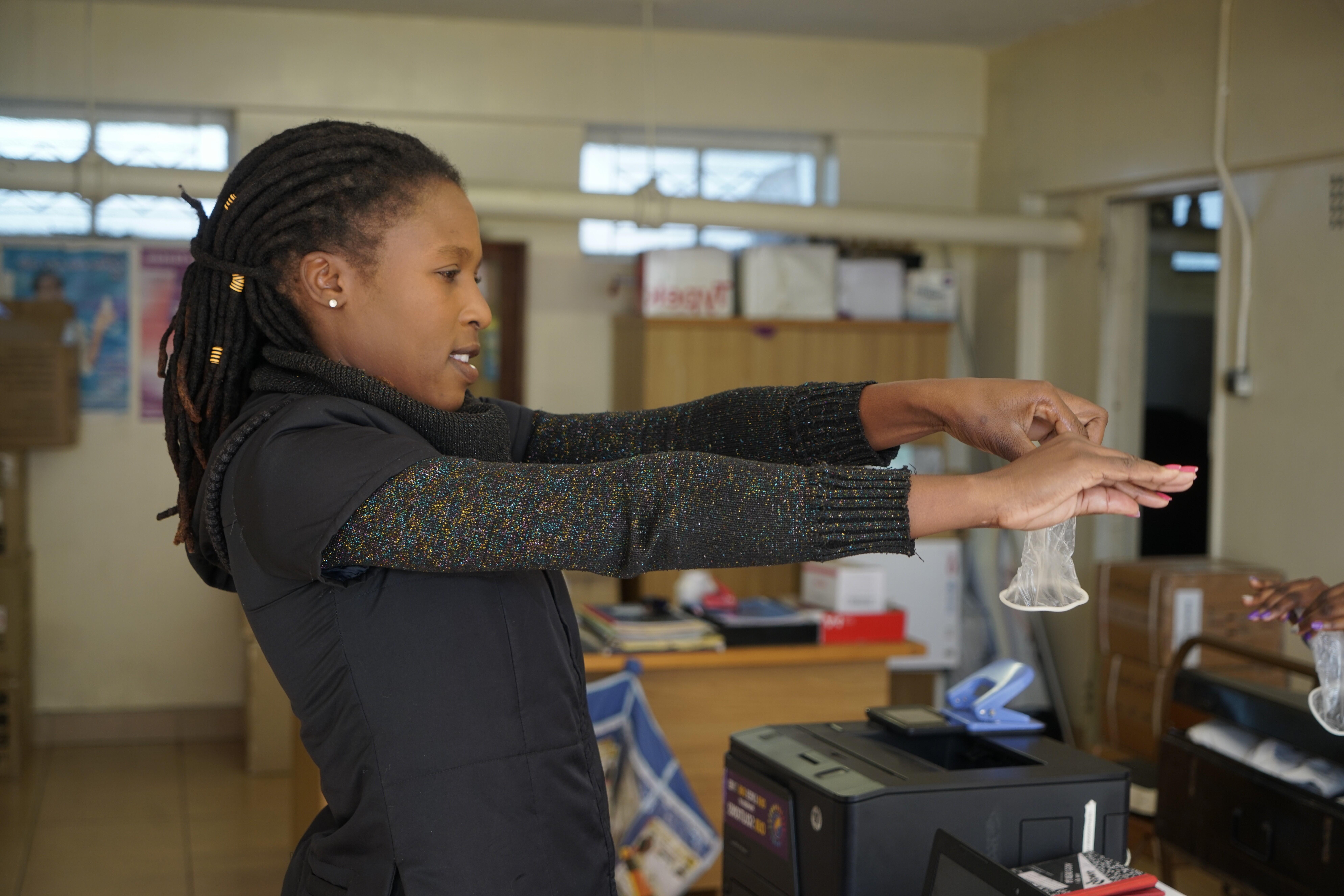“My name is Onai* I am young woman selling sex aged 23 years. I stay in Hopley. It’s one of the poorest suburbs in Harare. I was not able to continue with education because there was no money and started going to bars to look for clients when I was 16years old. In addition, my mother was constantly ill, so I had to go to the bars and sell sex to get money to look after my mother. I then got pregnant and the father of my child abandoned me.
I still go to bars for sex work so that I can look after my mother and my child. In Hopley, we fight for everything, even places to solicit sex from clients. One day, while working, I met a fellow sex worker who introduced me to the Building Resilience Programme which was run by CeSHHAR Zimbabwe for young mothers who are sex workers. It was a support group.
Later, in 2020 CeSHHAR introduced to the Educational Assistance Programme for young women selling sex (funded by the Health Development Fund through UNFPA). I was so happy that this programme came into my life at a time sex work was not paying because of Covid-19. Life was tough. Also because of sex work, I had lost self-confidence and hope for the future. I could not dream anymore because all my dreams were shattered at a tender age. I was often very depressed and was using drugs often to get me through the day.”
The Health Development Fund (HDF) is a multi-donor fund supported by the governments of Britain, Ireland, Sweden and the European Union. The fund in Zimbabwe is administered by the United Nations Population Fund (UNFPA) and United Nations Childrens Fund (UNICEF). UNFPA, with HDF funding, is responding to the needs of women selling sex to gain life and job skills by working with CESSHAR.
“Through this programme I was given the opportunity to change my life. I enrolled for a hotel and catering course at a local college. Yes, it was tough the first month, having to check my behaviour all the time but I endured. Currently I am waiting to go for work placement. I can safely say I am now a part-time sex worker as I am now into selling samosas and sausage rolls, skills I learnt as part of my course.
I did not know doing a course is so empowering, I am self-reliant now and no longer depend entirely on having sex with men for financial support. The community now respects me; they see a hardworking young woman not just “ana Gamuchirai” - young women who have sex for money. My aim is to one day own a canteen and help other young sex workers. I am grateful to this education programme for changing my life and making me realize that education is indeed a pillar of strength. Not only have I learnt to cook and bake, but I have also been equipped to be able to negotiate for safe sex with clients through the community mobilization meetings where we are given health talks.”
Under HDF, UNFPA is also supporting access to healthcare services for Key Populations. In 2020, a total of 3,446 sex workers accessed medical services in hot spot areas against a set target of 1,800. The back to school grants and stipends were issued as a social protection measures for the 60 supported girls under the Young Women Selling Sex (YWSS) pilot programme to cushion the girls from the economic shocks associated with limited ability to operate in the informal sector due to COVID-19 restrictions. When schools re-opened a total of 100 YWSS were supported with back to school grants and stipends.
* Onai Not real name


